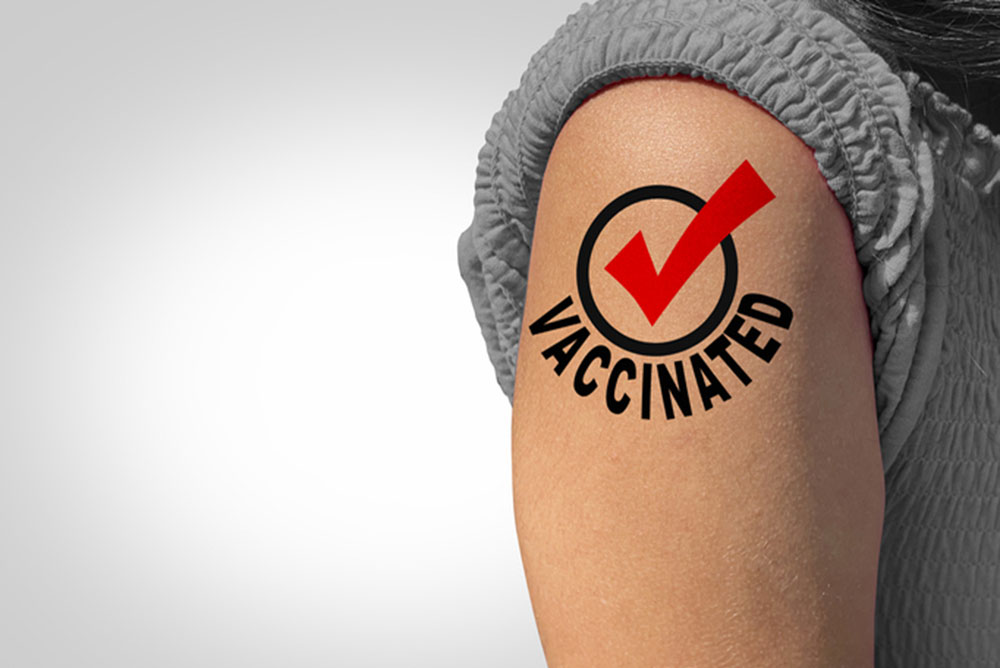
iStock
By Mary Carpenter
DURING A recent encounter with fully vaccinated friends, a woman in her early 70s backed away from the group saying, “My antibody count is very low: 160.” Looking puzzled, no one else knew their antibody numbers—or even their general low or high levels—although many had received “positive” results from blood tests that assess the presence of vaccine-induced antibodies.
In response to the Delta variant’s rampage among fully vaccinated people, booster shots in the U.S. are now available for the moderately to severely immune-compromised—those with specific diseases or recent stem or bone marrow transplants. Awaiting approval from the FDA and CDC, everyone who received mRNA vaccines (Pfizer and Moderna) may have a third booster shot eight months after their last vaccine, starting September 20—at the same location where they received their earlier doses.
But at pharmacies with vaccines in stock, about a million Americans have skipped ahead—by driving out of state or concealing their identity—to get a third shot, according to an internal CDC memo. Besides being unable to record the not-yet-recommended third dose on personal vaccine cards, people receiving early booster shots may have no response or possibly develop serious problems.
Israel now offers mRNA boosters to those age 50 and above. For the Johnson & Johnson vaccine, the U.S. is awaiting more research, while Iceland recommends a booster eight weeks after receiving the vaccine. The main purpose of existing Covid vaccines is to prevent severe infection and hospitalization.
But increasing hospitalizations in Israel (the world’s most-vaccinated population), breakthrough Covid in those fully vaccinated with the Pfizer vaccine helped spur the new U.S. recommendations. According to Israeli data, the Pfizer vaccine had become less than 55% effective against serious disease for those age 65 and older.
In Iceland, an excellent Covid surveillance system provides total numbers of cases—including asymptomatic cases no longer counted in the U.S.—and 71% of the population is fully vaccinated. In the current Covid wave, 1,300 people have developed infections, with 65 admitted to the hospital—among whom 60% (39 patients) were fully vaccinated.
But getting a third shot too soon risks overstimulating the immune system, which could make the body less adept at fighting Covid infection, as happens with malaria, Washington University immunologist Marion Pepper told The Atlantic. Pepper explained that the immune system “needs some time and space to calm down in between seeing one infection and the next one” —to develop its pathogen-detection skills.
In addition, only very preliminary research confirms that specific levels of antibodies in the blood are a good indication of how well protected people are from severe Covid. And Pfizer’s clinical booster trials measured only whether antibodies had increased, rather than specific levels, and tracked participants for only one month after their third dose.
The Delta variant is still too new for answers to many ongoing questions, notably what’s responsible for its rampage. The cause could be waning antibody levels or minimal antibody responses in so-called “low-responders.” Alternatively—or simultaneously—the particular contagiousness and/or virulence of the Delta variant could be spurring the 10-fold spike in severe Covid cases in the U.S. since early summer.
Quantitative antibody tests, also called “immunity trackers” —such as the one mentioned above by the woman with the 160 antibody count—identify neutralizing antibodies that prevent the virus from entering cells and replicating, writes Helen Thomson in the New Scientist. Thomson took the quantitative antibody test made by Roche, for which she paid 49 pounds or $66.75.
While a typical antibody level 21 days after the second dose of the Pfizer/BioNTech vaccine is 1,000 to 2,000 units/milliliter, a “positive” antibody test result comes with any level above 0.8 U/ml. Thomson’s level was 15-20 U/ml, considered “low ”—but it’s unclear whether her vaccine’s protectiveness had begun to wane or she had been a “low-responder” from the outset.
The usefulness of qualitative antibody tests is complicated, Thomson points out, due to the “intricacies of the immune response to a virus.” Besides neutralizing antibodies spurred by vaccines, the body’s B cells make additional antibodies, and different T-cells kill virus-infected cells directly—not so much preventing the infection as modulating or terminating it. With ongoing reduced severity and hospitalizations, “this is exactly what we are seeing,” explains Alessandro Sette, immunologist at the La Jolla Institute in California.
In addition, tests measuring antibodies in a laboratory may be “meaningless” in predicting real-world activity, according to London virologist George Kassiotis. As a result, quantitative antibody results could create either false reassurances of protection or unnecessary fears, Thomson concludes.
On the other hand, a small data set collected using a different antibody-quantifying test has linked waning immunity to the risk of breakthrough Covid. Of 107 individuals who took the test, which rates an individual’s levels from “very high” to “low,” those with low or medium levels became “negative” for antibodies over a year and some got Covid in the second wave —compared to people with high or very high levels in April 2020 who are “all still positive today.”
And last week, pre-print results from a large multicenter study showed that antibody levels can provide “correlates of protection.” Said Christopher Houchens, one author of the paper and a biologist at the U.S. Biomedical Advanced Research and Development Authority, “We saw a very clear correlation that the higher the level of antibody produced by vaccines, the less likely you were to become sick.”
For me, the most worrisome risk of breakthrough infections is long Covid, with symptoms including severe fatigue, brain fog and sleep problems—which sound a lot like those I had for years following Lyme disease in 2008. Recently—though in a very small data set—among 1,497 fully vaccinated health care workers, 39 developed breakthrough infections—and of 36, seven had persistent symptoms six weeks later.
For now, I am heeding the personal views of epidemiologists in a STAT survey, who in general plan to avoid indoor movies and restaurants for the foreseeable future. And I will seek out any possible protection—notably the hoped-for booster after September 20.
—Mary Carpenter keeps track of continuing developments in Covid-19.

